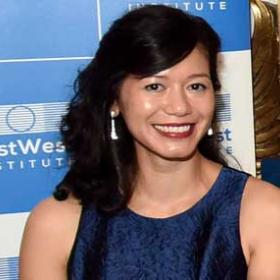
Measuring Russia’s National Power in the post-Cold War Era
Where does Russia stand in the post-Cold war era? In recent years, scholars have debated whether Russia has regained its former superpower status or experienced a decline in the 21st century. A new report from the Russia Matters Project at Harvard Kennedy School’s Belfer Center for Science and International Affairs seeks to provide a data-driven assessment of Russia’s national power under the leadership of Vladimir Putin, arguing that Russia’s standing in the global order bears considerable implications for U.S. and international interests.
To measure Russia’s national power, authors Simon Saradzhyan, director of the Russia Matters Project, and Nabi Abdullaev, lecturer at the Moscow School of Social and Economic Sciences, analyzed economic output, energy consumption, population, life expectancy, military expenditures, government effectiveness and other data, such as patents and tourist visits, during the period from 1999 to 2016. Russia was first compared against the world as a whole; and then against its competitors (including five of the West’s leading powers) and peers (including other BRICS members, former Soviet republics and select countries with hydrocarbon economies). Nearly all research models indicated growth vis-à-vis the world, while Russia occupied a middle position vis-à-vis its peers, lagging behind China but outrunning the West.
Whether in the ascendant, in decline or in stagnation, the trajectory of Russia’s national power matters. Russia’s ability to impact counterterrorism efforts, the non-proliferation of nuclear weapons, energy supply and other global issues is in part determined by its national capabilities. In turn, how the global community perceives Russia—as a nation on the rise or in decline—can color its policies toward Russia.
Please visit the Russia Matters website for the full report and executive summary.
About Russia Matters
Russia Matters is a project launched in 2016 by Harvard Kennedy School’s Belfer Center for Science and International Affairs and made possible with support from Carnegie Corporation of New York.
The project’s main aim is to improve the understanding of Russia and the U.S.-Russian relationship among America’s policymakers and concerned public. It does so by showcasing the best expertise on Russia and its relationships with the rest of the world by providing top-notch analysis, relevant factual data and related digests of news and analysis.
Russia Matters likewise endeavors to build bridges between academe and the policymaking community.
Image: "Black Square" (CC BY 2.0) by tinou bao

